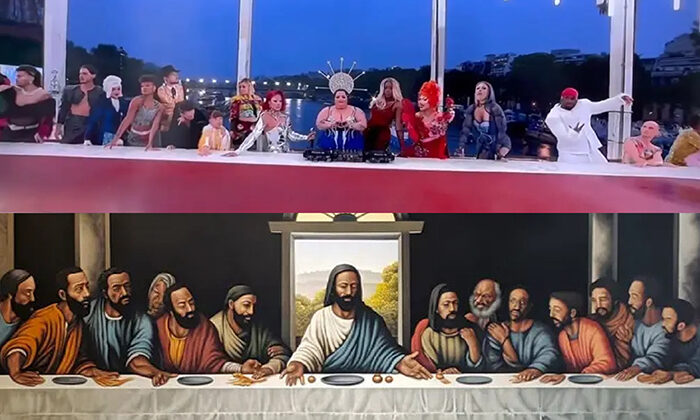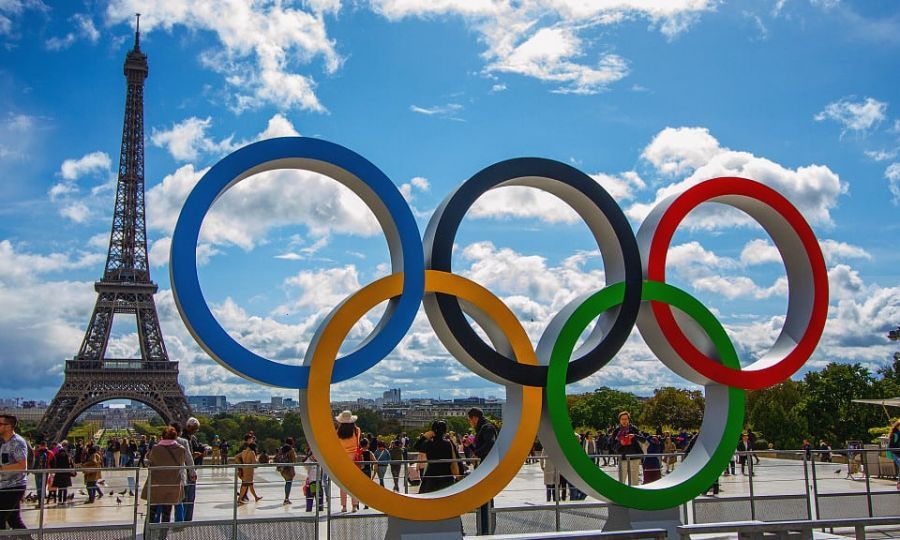Story By Linda Makau,
Paris, France – The 2024 Summer Olympics, which opened in Paris on July 26, has been mired in controversy following its opening ceremony. Many Christians worldwide have expressed outrage, alleging that the event included segments that appeared to mock central tenets of their faith, including a depiction reminiscent of the Last Supper and references to the Four Horsemen of the Apocalypse.
The contentious moments occurred during a segment of the ceremony that sought to blend historical and cultural elements of various civilizations. One particular performance, however, drew immediate backlash: a tableau that critics argue bore a striking resemblance to Leonardo da Vinci’s “The Last Supper.” Performers arranged around a long table, seemingly emulating the famous depiction of Jesus Christ and his disciples, caused many to feel that a sacred scene was being trivialized for entertainment.

Adding fuel to the fire, another segment featured horsemen riding through a darkened stage, accompanied by ominous music and a voiceover that some interpreted as alluding to the Four Horsemen of the Apocalypse. This biblical imagery, commonly associated with themes of destruction and judgment, left many viewers uncomfortable and sparked accusations that the ceremony was in poor taste. Social media quickly became a battleground for opinions, with hashtags such as #OlympicsBlasphemy and #RespectFaith trending as users voiced their outrage. Prominent Christian leaders and organizations have also weighed in, condemning what they perceive as a deliberate affront to their beliefs.
Father Jean-Michel Dubois of the Notre-Dame Cathedral stated, “The Olympics should be a time of unity and peace, not a platform for insensitive portrayals of religious symbols. This is deeply hurtful to millions of Christians around the world.” In response to the backlash, the International Olympic Committee (IOC) and the ceremony’s creative team released a statement: “The intention of the opening ceremony was to celebrate the diversity of human culture and history. We apologize if any segments were perceived as disrespectful. That was never our intention.” The incident has reignited broader discussions about the portrayal of religious symbols in public and cultural events. Many argue for greater sensitivity and respect, especially given the global nature of the Olympics, which brings together diverse audiences from various cultural and religious backgrounds.
As the Games continue, the controversy serves as a stark reminder of the powerful impact of cultural representation and the need for careful consideration of the messages conveyed through such high-profile events. Whether this incident will lead to more stringent oversight in future ceremonies remains to be seen, but for now, the shadow of controversy looms large over the Paris Olympics. Thomas Duval, the artistic director of the opening ceremony, defended the segments, explaining that they were meant to symbolize universal themes of human struggle and resilience. “Art is often provocative and open to interpretation. Our intention was to inspire reflection on humanity’s journey, not to mock or belittle any faith,” he said in a press conference.
As the Paris Olympics continue, it remains to be seen how this controversy will unfold and what measures the organizers might take to address the concerns raised. For now, the incident serves as a poignant reminder of the powerful role that religion and symbolism play in the public consciousness, and the care required in their portrayal on the world stage.
See the Full Incident here.







Leave a Reply